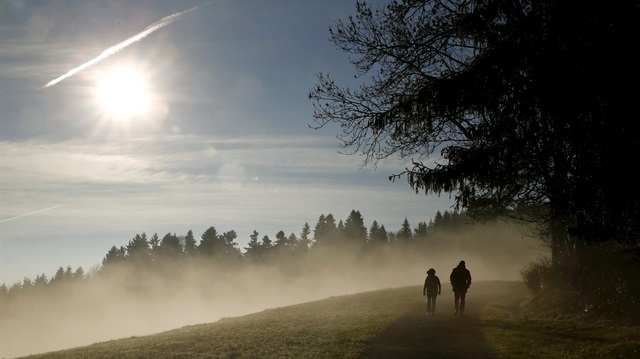
Scorching "Lucifer" heatwaves above 40 degrees Celsius (104°F) will become normal by the 2050s in southern Europe, scientists said on Wednesday, calling for preparedness to save lives.
Heatwaves like Lucifer, which fanned forest fires and damaged crops in Europe in August, are now at least four times more common than they were a century ago, said the World Weather Attribution (WWA), a coalition of international scientists.
"In the early 1900s, a summer like the one we just experienced would have been extremely rare," Geert Jan van Oldenborgh, senior researcher at the Royal Netherlands Meteorological Institute, said in a statement.
"Across southern Europe, there is now a one in 10 chance of seeing a heatwave as hot as we saw during this past summer every summer."
Such weather will become typical in southern Europe by mid-century if greenhouse gases continue to increase in the atmosphere, according to climate model simulations by WWA, which assesses climate change's influence on extreme weather.
World temperatures hit a record high for the third year in a row in 2016, scientists said in January.
The intensity of heatwaves in Europe has also increased by 1 to 2 degrees Celsius since 1950, WWA said.
More than 35,000 people died during a European heatwave in 2003, and tens of thousands perished in Russia during extreme heat in 2010.
The threat is particularly severe in already sweltering places, from South Asia to the Gulf.
"It is critical that cities work with scientists and public health experts to develop heat action plans," said Robert Vautard, a researcher at the Laboratory of Climate and Environmental Sciences.
"Climate change is impacting communities right now and these plans save lives."
During Lucifer, emergency admissions to hospital in Italy increased by 15 percent, WWA said.
Europe's death toll from weather disasters, including heatwaves, wildfires and drought, could increase 50-fold by the end of the century, The Lancet Planetary Health journal said in August.
Governments in 2015 agreed to limit warming to "well below" 2 degrees Celsius above pre-industrial times, while pursuing efforts for a 1.5 Celsius limit.














